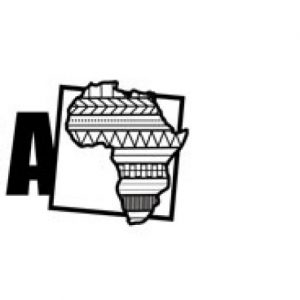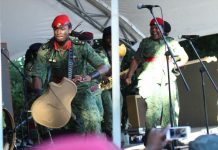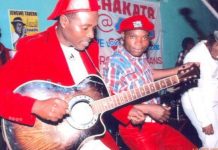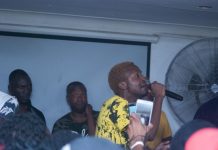Zimbabweans are a people scattered all over the globe. It’s not news that we have had the worst never changing government since her birth. Amongst the best ways we have had to emancipate ourselves from our sad political and economic situation is to work extra hard; feeding off the scraps falling from the tables of the greedy and made to search for meaning and existence to where the grass looks “greener”.
Amongst the many that have taken the long rides in pursuit of happiness very few musicians have done so in with music in mind, but rather to etch any other form of existence, having had it tough in the music scene back home.
To leave the country in the hope of wowing the greener prospects with a taste of Zimbabwean music is a detrimental to one’s career (if not health) as it is a country not really known for its musical prowess.
With many artists and genres to choose from, the world isn’t very open to the sound of the Zimbabwean artist.
But as they say, the mind is the strongest tool we can ever wield and overcoming any negative thought whilst simply applying yourself to what you love best, can get you very far.
Zivanai Masango is a Zimbabwean born guitarist, songwriter and singer pushing the boundaries and sticking it to where it hurts, to that bent over mentality of ‘kusina amai hakuendwe’ and enforcing the ‘where there is a will there is a way’ attitude!
After relocating to the United States of America, Zivanai did not yield on his ambitions and love for playing the guitar. Back home he had played for various artists but since moving to the U.S he explored different sounds. He plays what he calls Afropop/Afrojazz fusion music, a concoction of his roots, jazz influences from Africa and hints of the Blues and R’n’B.
“We do Afropop/Afrojazz fusion music… firmly rooted in the traditions, sounds and rhythms of Zimbabwe and Southern Africa but also reflecting the various international influences I’ve picked up in my long journey as a professional musician… as well as a fan of music in general. International influences include jazz, blues, r’n’b etc” Zivanai said.
When he performs, he does mostly original material from his last 3 albums and some yet to be released material and has found acceptance and a following through his versatility in play and the constructive use of social media. He never misses an opportunity to share what and who he’s working on and his awkward meetings with the world’s biggest names in jazz music, Lee Ritenour and his love for the Ibanez guitar brand.
Being in America, he has had to be creative. It indeed is a big nation. However, wetting the appetites of traditional mbira/folk music (which has done more to put Zimbabwe on the map as a truly original sound from the land locked country than any other genre) can indeed take you a long way.
With notable pioneers of the traditional mbira such as Ambuya Stella Chiweshe, Dumisani Maraire, daughter Chiwoniso Maraire and Ephat Mujuru, having the paved the way amongst during their time, Masango simply picks up some of this music which is in the public domain to play to his musical advantage. He has been able to put a twist of his own and has seen him become a somewhat force to reckon with.
Becoming a social interpreter or protestor (in whichever way you decide to look at it), Zivanai Masango has managed to reflect the musical journey he has had and the different societies he has been blessed to being a part of.
His song “Varimugomo” which he wrote ‘after an American friend lamented on how they send congressmen to Capital Hill but once they get there, forget to represent the interests of the ones who voted them there’. cannot resonate enough what we face in his Zimbabwe.
“I didn’t mean to protest per se… but I had genuine questions for those on the hill (leaders)… to ask where that zeal to better the people which they had in the beginning went to… to ask how they have totally lost their collective conscience… to ask why they are not ashamed to pillage the country and turn it into rags… to ask why they don’t have mercy. I had genuine observations of how the ones at the bottom of the chain are always crying while they (politicians) are sitting pretty with their families. If that makes it protest music, then so be it.” He said.
His is a sound that can perform well as they has always been a great demand for folk and traditional sounding music in the world, regardless of how the wave of new music coming up has in a way shoved us from that route into a somewhat downward spiral. Zimbabwe has simply lost its music identity (if we had one) and because we yearn to appeal to trends are digressing and losing the grab we once had on the world.
Which makes him even reluctant to release some of his music sighting the industry as volatile and unsure.
“I have a collection of songs in the works… but I’m not sure whether to release them as an album or just trickle them out as singles. The nature of the music industry these days makes that a difficult question,”
He however might be convinced to do an album, probably in 2018 depending on how well his fans demand for it.
Zivanai is determined to keep learning and improving, as he has figured out, it is the only way to bring up a brand. I sensed a longing for being equally revered in his home country like the one he gets in the US.
Zimbabwean music fans tend to have a cult following to everything. A definition of greatness is usually how the crowds says it is and rarely how it sounds. When they catch the flame, they do so alarmingly, blinkered and never to be moved. It is the same reason why it is so easy to climb the musical ladder in the country, lose footing and come hitting the ground with a big thud! All within a short space of time. Very few artists have survived these spikes in popularity and lived to tell the tale. Many have simply been forced to give up on their dream.
This is what Zivanai is afraid of and indeed a daunting proposition.
It could also be the fact that he didn’t play much as his own as an artist back in Zimbabwe. His solo career blossomed in the states and cannot be drawn into comparing where he has made most impact in his musical career.
Despite his lack of a solo career in Zimbabwe, he admits how easy it is to play for non-Zimbabwean audiences in America. Sighting Zimbabwean audiences as being skeptical.
“There is a certain cynicism and skepticism from home fans, they don’t readily accept you. Whereas non-Zimbabwean audiences are quicker to embrace you and accept you.”
I guess it could be because a new sound like anything unfamiliar requires the taste to be acquired.
Be that as it may, his work is progressive and has worked with great Zimbabwean musicians touring the US, such as Oliver Mtukudzi, Mechanic Manyeruke and self- exiled Chimurenga musician, Thomas Mapfumo. He admits having learnt a lot from such big names in Zimbabwean music and will have to work harder to command as much respect as these artists get as travelling musicians.
Zivanai is a drop in the ocean of the Zimbabweans that are scattered all over the world who are doing well but barely noticed back at home. It could also be that Zimbabwe is too busy with a lot (of nothing) to see what they’ve got or like he neatly said,
“A prophet is accepted away from home more than at home,”










